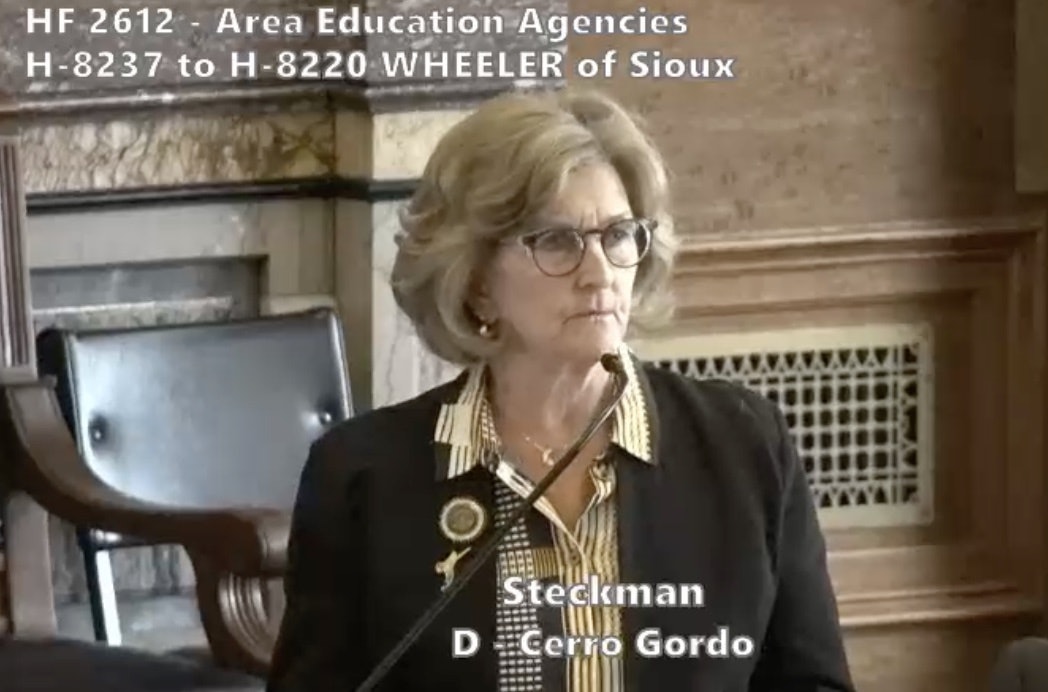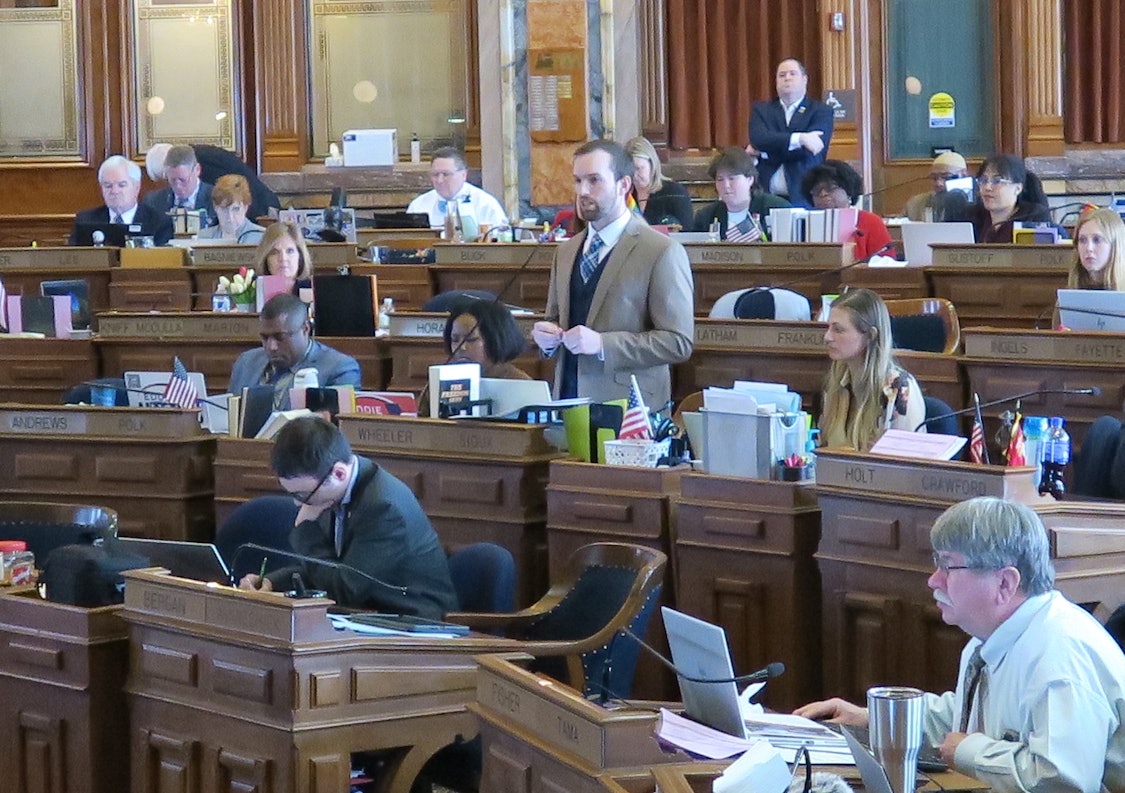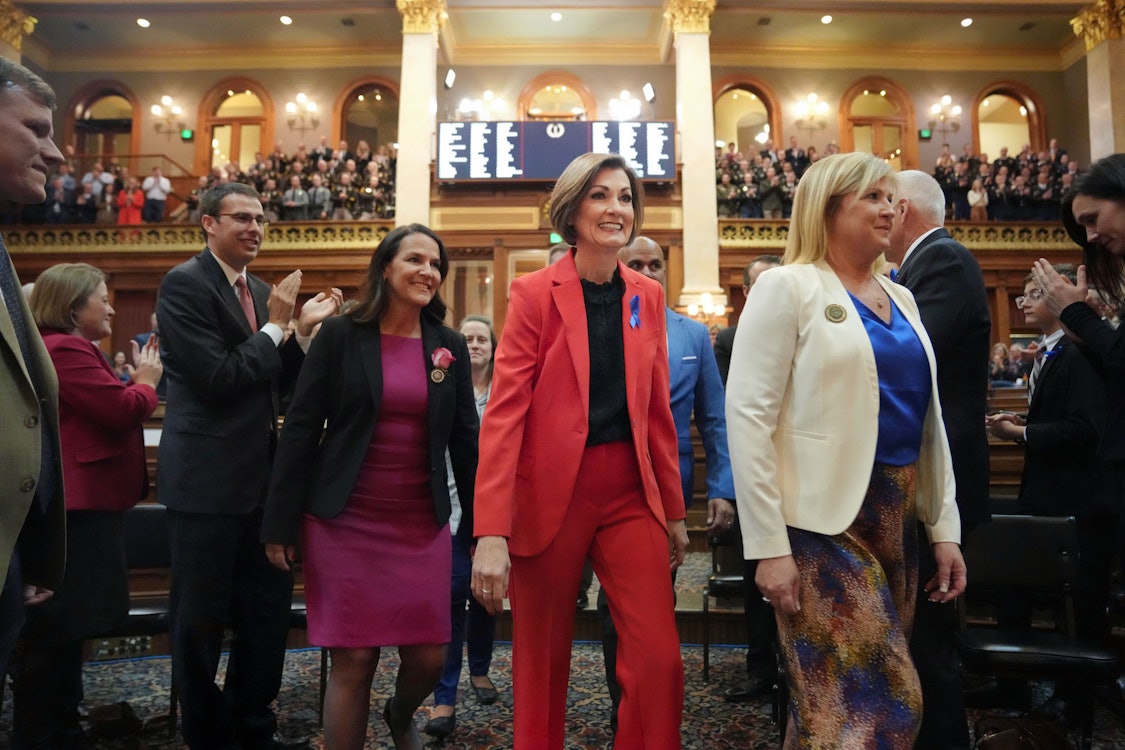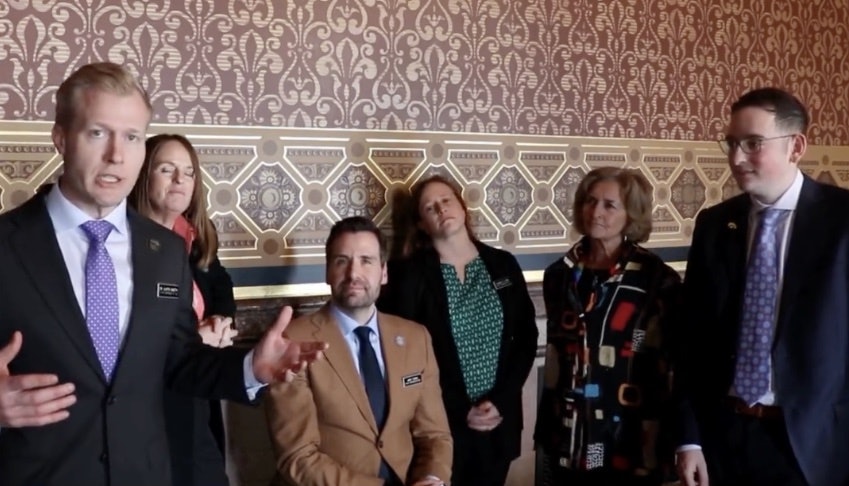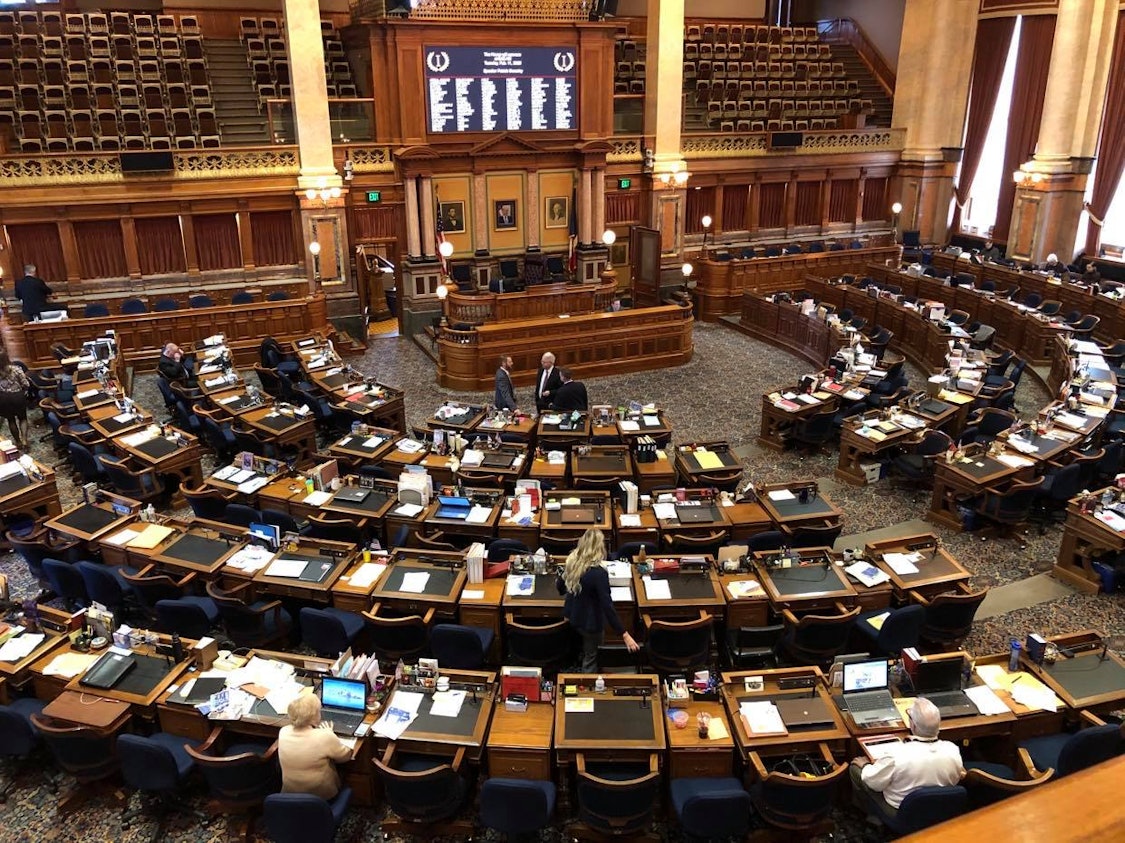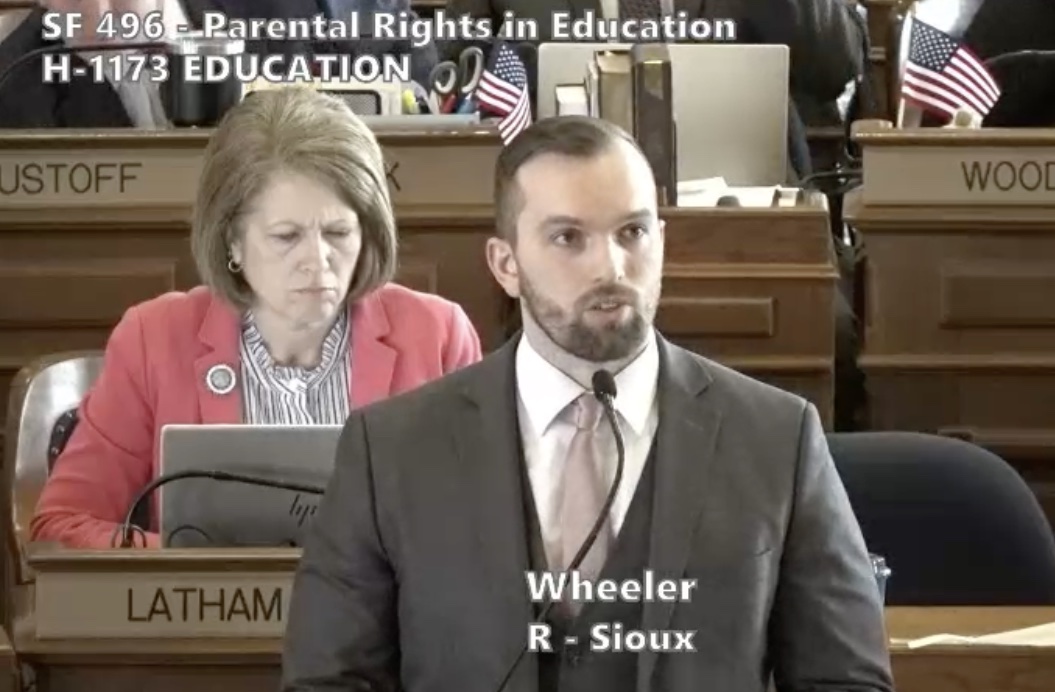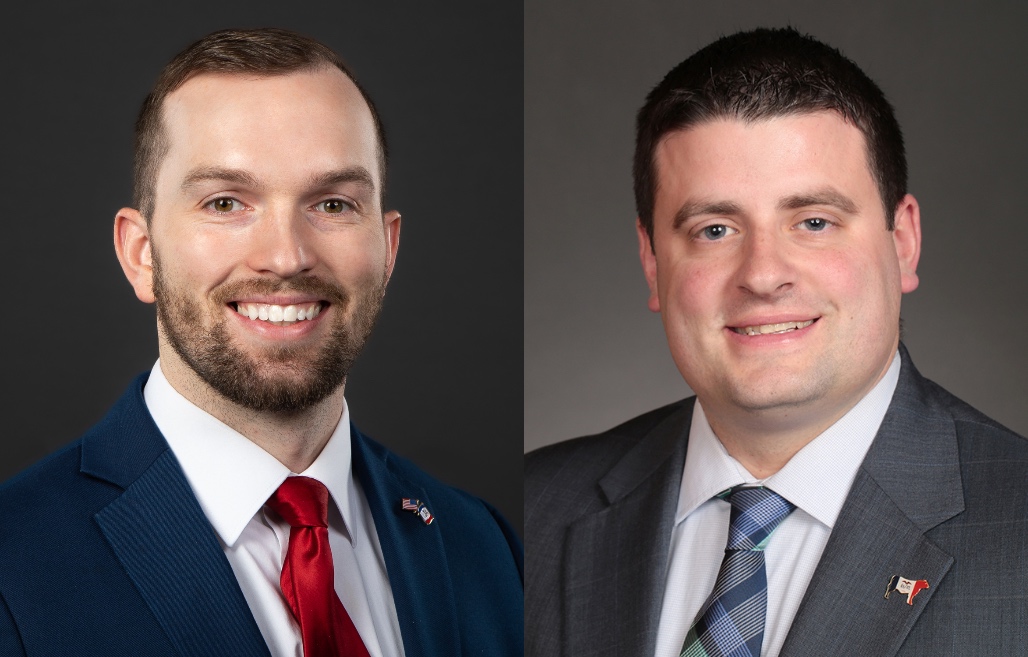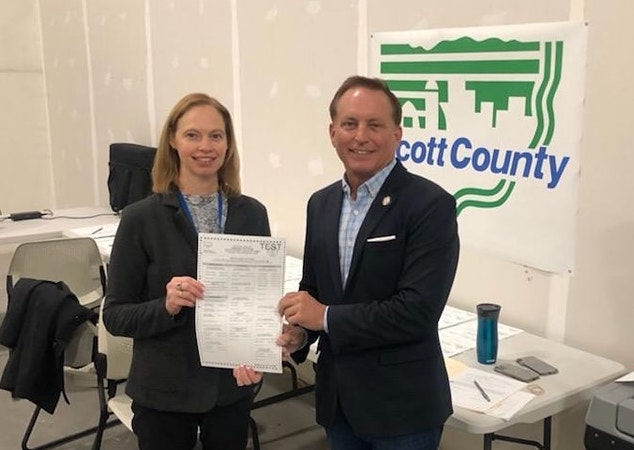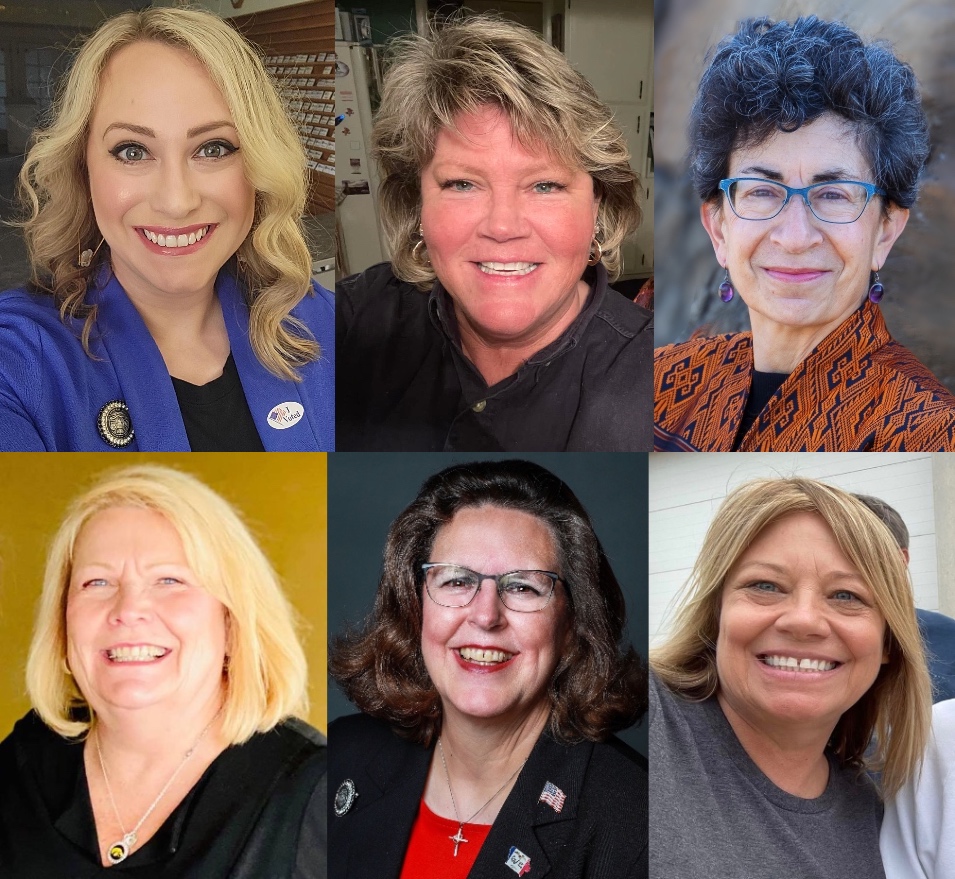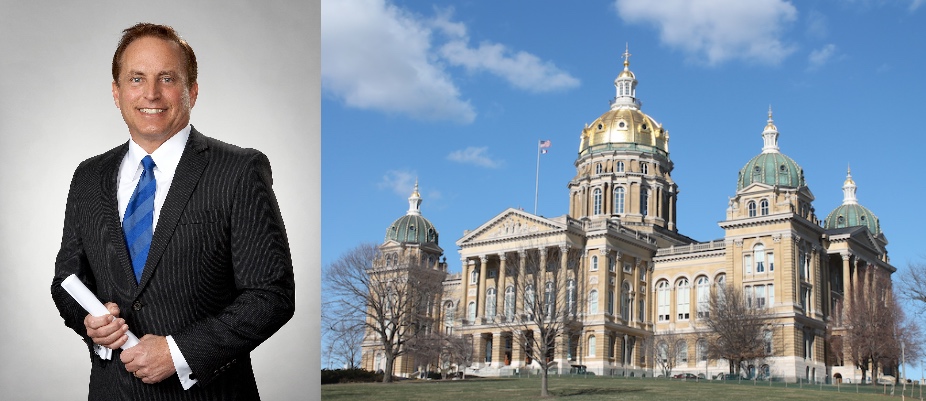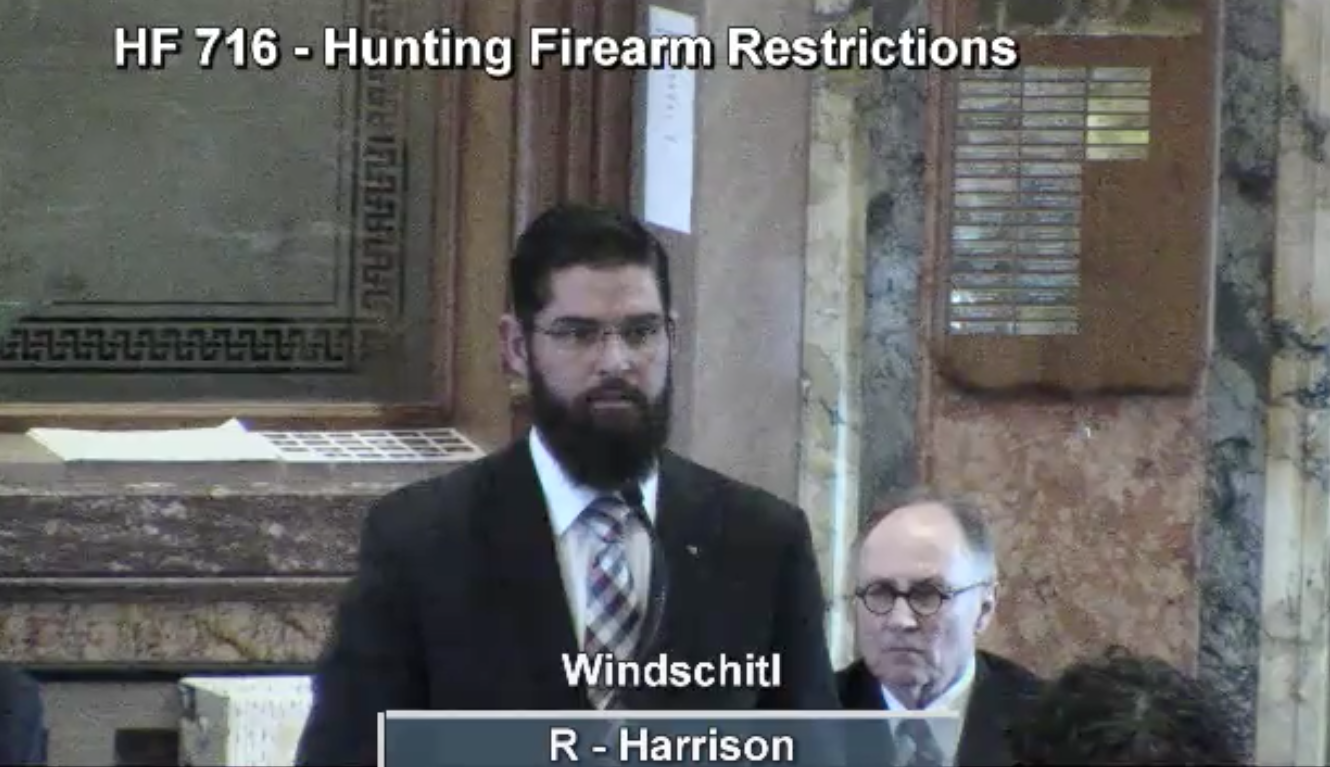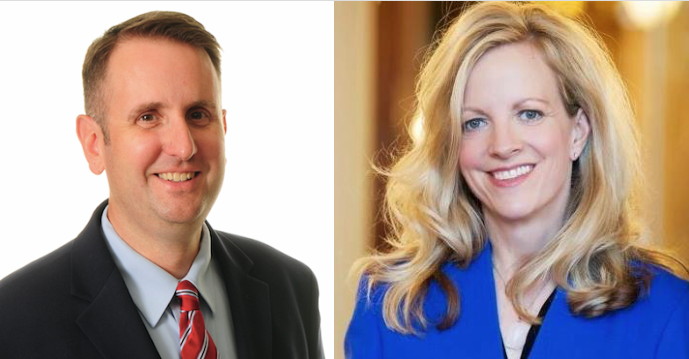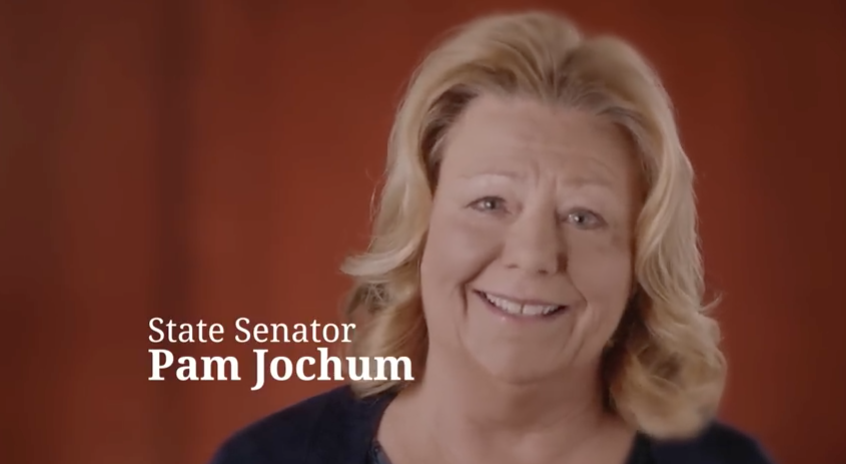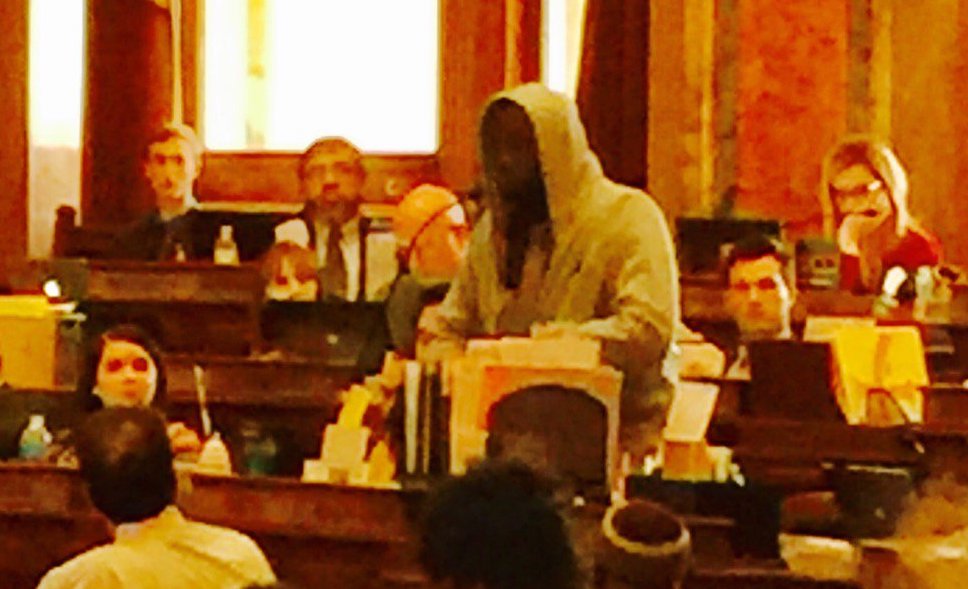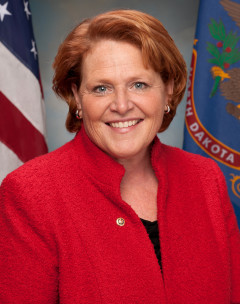Remember that the final presidential debate will be on Wednesday, October 15.
Saturday, October 11:
John McCain is coming to Davenport for a late morning rally with lots of Iowa Republicans. If you go there, please post a diary to tell us about the event and the mood in the crowd.
Former Governor Tom Vilsack will hold a press conference to discuss McCain’s failed economic policies at 2:00pm in the UFCW Hall, 1401 West 3rd Street in Davenport.
The Quad Cities Earth Charter Summit is happening from 8 am to 4 pm at the River Center in downtown Davenport. This year’s event will give you many opportunities to explore facts and opportunities for better living on planet Earth. You will leave with hope for the future and energy to make a difference. In addition to presentations and displays by local groups, there will be several speakers including, Colin Beavan, “No Impact Man” – who has been featured in media on programs as diverse as NPR news and “Good Morning America.” Colin’s topic will be “Does Our Happiness Have to Cost the Planet?” The keynote speaker in the morning will be well-known University of Iowa professor Dr. Jerry Schnoor to discuss the Global Climate Crisis. Cost for the day is just $20 per person and includes an earth friendly lunch. For more details and to download a registration brochure go to www.qcearthcharter.org or contact lbellomy@chmiowa.org.
Rob Hubler will be on the Onawa Main Street, beginning at 10:45 am. He will attend a preforum cookout in Onawa beginning at 12:30 pm. Then he will attend the Onawa Chamber of Commerce Candidate Forum at 2 p.m. in the Onawa Public Library.
Hubler will also be at the Sac County Democrats Fall Picnic at 5:30 pm.
Becky Greenwald is holding a Coffee and Canvass with Sharon Steckman (candidate in Iowa House district 13) at 1 pm in the Borealis Coffee Shop,
316 N Federal Ave, Mason City.
Greenwald will attend the Humboldt County Soup Supper beginning at 5 pm in the VFW Hall, 412 Main St. in Dakota City.
At 7:30 pm, Greenwald will attend a fundraiser with Senator Rich Olive in the Randall Gym, Intersection of 3rd St. and School St. in Randall.
Sunday, October 12:
Becky Greenwald will be at the Covered Bridge Parade from 1pm – 3pm in Winterset, 7th Ave. and Husky Drive.
Greenwald will attend the Hardin County Democratic Fundraiser from 5pm – 7pm at the American Legion Building, 709 S. Oak Street in Iowa Falls.
Rob Hubler will be in Coon Rapids at 4 pm. Please call 712 352-2077 for details.
Join Whiterock Conservancy’s land stewardship crew in collecting prairie and savanna seeds for use in restoration projects. Learn to identify grassland plant species, learn their habitats, and assist in collecting the seeds for the future. Join the collection crew just east of Coon Rapids. Help collect today so that we may plant tomorrow. Contact WRC’s ecologist, Elizabeth Hill to sign up for prairie seed collection forays: elizabeth@whiterockconservancy.org.
The Iowa City Environmental Film Festival is opening:
“America’s Lost Landscape; The Tallgrass Prairie” is the first of seven films being screened as part of the new Iowa City Environmental Film Festival. The film will be shown Sunday, October 12 at 2:00 PM at the Iowa City Public Library, Room A.
Connie Mutel, local resident and author of The Emerald Horizon, The History of Nature in Iowa , will lead a discussion following the film. The film is hosted by Citizens for Our Land Our Water Our Future. ( www.landwaterfuture.org)
This film tells the rich and complex story of one of the most astonishing alterations of nature in human history. “Examines the record of human struggle, triumph and defeat that prairie history exemplifies. IDA’s Pare Lorentz award citation.
The Iowa City Environmental Film Festival was developed in collaboration with non-profit environmental groups throughout the region. Films will be screened once a month at the Iowa City Public Library, Room A. Screenings are free and open to the public and include discussions with local advocates and experts.
For more information on this and upcoming films go to:
www.EnvironmentalFilmsIC.com
or
info@environmentalfilmsic.com
I heard Connie Mutel speak about her new book at the annual meeting of 1000 Friends of Iowa in August. I highly recommend her presentation.
Monday, October 13:
Rob Hubler will speak to the Sioux City Downtown Rotary Club, beginning at 11:45 am.
Governor Chet Culver will attend a reception to raise money for Becky Greenwald’s campaign at the home of Marcia and Rick Wanamaker, 710 Southfork Drive in Waukee, at 5:30 pm. For more details or to RSVP, contact Eric Dillon at (515) 987-2800 or dillon@beckygreenwald.com.
Singer-songwriter Carole King will be campaigning for Barack Obama. I got my picture taken with her when she came to Des Moines for John Kerry shortly before the 2004 caucuses. However, I forgot to bring my copy of “Tapestry” for her to autograph! Details for her upcoming appearances:
Carole King is a Grammy Award winning singer-songwriter. She has been inducted into the Songwriters Hall of Fame and the Rock and Roll Hall of Fame. King has traveled across the country, including Ohio, Pennsylvania and New Hampshire, on behalf of the Obama campaign.
MONDAY, OCTOBER 13TH, 2008
10:00 AM
Carole King to Hold a “Vote Now for Change” Coffee
Campaign for Change Office
104 N 1st St.
Winterset, Iowa
1:00 PM
Carole King to Hold a “Vote Now for Change” Lunch
Firehouse in Red Oak
310 Washington Ave.
Red Oak, Iowa
5:30 PM
Carole King to Kick-Off a “Vote Now for Change” Phone Bank
Prairie Blue
114 N. Wilson St.
Jefferson, Iowa
7:45 PM
Carole King to Thank Volunteers
Stomping Grounds
303 Welch Ave
Ames, Iowa
Tuesday, October 14:
Carole King will hold several more events:
10:00 AM
Carole King to Hold a “Vote Now for Change” Rally
Gentle Student Center
Ellsworth Community College
1100 College Ave.
Iowa Falls, Iowa
1:00 PM
Carole King to Hold a “Vote Now for Change” Lunch
Borealis Coffee Shop
316 N. Federal Ave
Mason City, Iowa
3:15 PM
Carol King to Hold a “Vote Now for Change” Canvass Kickoff Event
Campaign for Change Office
210 E. State St.
Algona, IA
5:00 PM
Carole King to Kick-Off a “Vote Now for Change” Phone Bank
Campaign for Change Office
33 N 12th St.
Fort Dodge, Iowa
8:00 PM
Carole King to Thank Volunteers
Ritual Café
1301 Locust St. #D
Des Moines, Iowa
From the Department of Natural Resources:
DES MOINES – A series of informational meetings to highlight proposed rule changes regarding public lands will be held in October in Des Moines, Dubuque and Spirit Lake. The first is scheduled for Tuesday, Oct. 14th in Des Moines.
The primary intent of changing the rules is to clarify the application procedure, formalize the permit denial process and provide better management of public lands and waters. The proposed rules will also provide for potential penalties associated with the violation of permit conditions or failure to get a permit prior to construction on public lands. The proposed rules also provide for greater enforcement ability by the DNR in cases where private entities have encroached on public land.
Public lands are owned by the citizens of Iowa and include many lakes, 14 rivers, wildlife management areas, state forests and state parks. The proposed rules do not pertain to docks which are covered under a separate chapter of Iowa law and have recently been revised.
“We have been working hard within the department to create rules that are both fair, but also provide us with the safeguards we need to adequately protect the public land owned by Iowa’s citizens,” said Diane Ford-Shivvers, assistant administrator of the DNR’s Conservation and Recreation Division. Ford-Shivvers said the DNR wants the three public meetings to be active discussions on the proposed rules which are scheduled to go into effect next March.
[…]
The three meetings are as follows:
* Tuesday, Oct. 14th; 6-8 pm at the Des Moines Botanical Center, Walsh Room, 909 Robert D. Ray Drive, Des Moines
* Thursday, Oct. 23rd; 6-8 pm at EB Lyons Interpretive Center, Mines of Spain State Park, 8991 Bellevue Heights, Dubuque.
* Monday, Oct. 27th; 6-8 pm at the Dickinson County Community Building, 1602 15th St., in Spirit Lake.
From the Sustainable Funding Coalition:
The Sustainable Funding Coalition, a diverse group of Iowa organizations (including INHF) that works for sustainable conservation funding, is sponsoring a series of candidate forums on the proposed Natural Resources and Outdoor Recreation Trust Fund.
So you can make your voice heard on this important issue, this e-mail provides background information on the forums, a list of forum dates & locations, and pre-registration instructions.
About the Fund: The proposed Natural Resources and Outdoor Recreation Trust Fund would provide a permanent funding source to support efforts to improve and preserve Iowa’s water quality, soils, wildlife habitat, and outdoor recreation opportunities.
To create the fund, proposed legislation mandates that 3/8ths of a cent from state sales tax revenue will be appropriated for the Trust Fund the next time the Iowa legislature approves a sales tax increase. The Sustainable Funding Coalition hopes to pass Trust Fund legislation during Iowa’s 2009 legislative session. NOTE: This bill does not raise taxes, nor does it give voters the ability to raise the sales tax-only the legislature can do that.
Ten candidate forums scattered throughout the state provide a chance for citizens and legislators/candidates to discuss this legislation together. Please consider attending the forum nearest you to learn more about this proposal, show your legislators/candidates that Iowans care about conservation funding, and promote passing the needed legislation for this fund during Iowa’s 2009 legislative session.
How to pre-register & attend: Find the forum nearest you in the list below and then pre-register at http://conservation-candidate-… NOTE: Pre-registration is critical because individual events may be canceled if pre-registration numbers are low.
October 14 at 7 pm in the Pin Oak Nature Center on HWY 14, south of Chariton.
Wednesday, October 15:
The final presidential debate will be on tv starting at 8 pm.
From the Fairness Fund PAC:
Do you want to elect leaders that promise change, equality, and genuine hope? This November we have a chance to send a Fair-minded Majority back to the State House to continue to fight for justice and fairness. Anti-gay groups and candidates are mobilizing for victory this fall – we must be ready to help our friends and allies. I hope you can join us to show your support for one of our friends and allies!
Please join us on Wednesday, October 15th, for a meet and greet with State Representative Candidate Gretchen Lawyer at the Mars Cafe (2318 University Avenue, Des Moines, Iowa), from 5:30-7:30pm. Gretchen will be there to answer questions about her vision for Iowa and what she plans to do when elected. Coffee will be served. There is a suggested donation of $30.
Gretchen Lawyer is running for State Representative in Iowa District 36. Gretchen Lawyer, a stay-at home-mother of two and a former teacher, is running for office because she believes we need the values of education, community, and hard work represented in the State Legislature, and that by working together we can put those values into action.
Please RSVP to Brad Clark at 515-783-5950.
Thursday, October 16:
Dead Zone in the Gulf of Mexico: Implications and Strategies for Iowa
This day-long conference begins at 8 a.m. at the Gateway Center in Ames, and will look at new and emerging research findings and pressing needs related to hypoxia in the Gulf of Mexico. Among the speakers will be Darrell Brown, chief of the U.S. Environmental Protection Agency’s Coastal Management Branch who coordinates the EPA’s efforts to reduce the size of the hypoxic zone in the northern Gulf of Mexico. Officials from various state agencies, NGOs and Iowa State researchers will present and participate in panel discussions. Registration begins September 8. Contacts: Cathy Kling, conference coordinator/research, ckling@iastate.edu, (515) 294-5767; or Sandy Clarke, communications/meeting planning, sclarke@iastate.edu, (515) 294-6257. See conference web site: http://www.card.iastate.edu/hy… This conference is a project of the Leopold Center Policy Initiative with support from the Center for Agricultural and Rural Development at Iowa State University.
Friday, October 17:
Iowa Environmental Council Annual Conference and Meeting–Waters that Unite Us is this year’s annual conference theme. Please mark your calendars and plan to join us for a day of learning and networking. The conference will be held at the Botanical Center in Des Moines, from 8 a.m. to 5 p.m., with a members meeting following shortly after close of the conference. At the conference we will explore where and how humans are having positive and negative impacts on Iowa waters and some of the ways individuals and communities can participate in solutions. Registration will begin in August. Speakers include Cornelia F. Mutel author of “The Emerald Horizon – The History of Nature in Iowa,” and Cornelia Butler Flora, Director of North Central Regional Center for Rural Development. Visit www.iaenvironment.org for more information in late July.
WILD, WILD Aquatic, & Learning Tree Facilitator Training, October 17-18, Guthrie Center. The Iowa DNR is offering a Projects WILD, WILD Aquatic, and Learning Tree facilitator training workshop on Friday, October 17th and Saturday, October 18th at the Springbrook Conservation Education Center near Guthrie Center. Anyone who trains teachers, naturalists, youth leaders, or others involved in teaching about the environment in Iowa is invited to attend. Training is FREE (a $50 refundable deposit is required to reserve your space). Stipends for attending and mileage reimbursement are available. Lodging and meals will be provided. For more information, contact the Aquatic Education Program: 641/747-2200; AquaticEd_Info@dnr.iowa.gov
Continue Reading...
